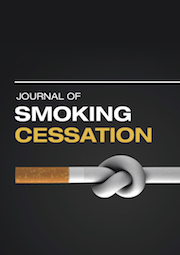Article contents
A brief tobacco dependence intervention for people living with HIV in Nepal: results of a quasi-experimental study
Published online by Cambridge University Press: 24 June 2019
Abstract
There is evidence of increased morbidity, decreased quality of life, and premature mortality in people living with HIV (PLHIV) who smoke tobacco compared to PLHIV who do not smoke tobacco. Evidence-based screening for tobacco dependence, pharmacological treatment, and treatment monitoring and education into relapse prevention are not readily available in low- and middle-income countries (LMIC). We evaluated the effects of a brief tobacco dependence intervention in improving knowledge on the health effects of smoking and intention to quit smoking in PLHIV in Nepal, a low-income country in south Asia.
Using a quasi-experimental design, we assigned 59 smokers to participate in the intervention and 67 in the control group. The 1.5 h smoking cessation intervention emphasized harms of smoking, reasons for smoking and quitting, causes of relapse in previous quit attempts, and quitting strategies. We collected data at baseline and immediately post-intervention.
Findings indicate that a brief smoking cessation intervention produced a significant increase in smoking-related knowledge and intention to quit among PLHIV. The positive effects of our intervention remained significant after adjusting for potential confounders.
Our brief tobacco dependence intervention was effective in improving knowledge on the health effects of smoking and intention to quit among PLHIV. Further studies are required to evaluate the effectiveness of our intervention in increasing smoking cessation among PLHIV in LMIC.
- Type
- Original Articles
- Information
- Copyright
- Copyright © The Author(s) 2019 Published by Cambridge University Press
References
- 2
- Cited by


